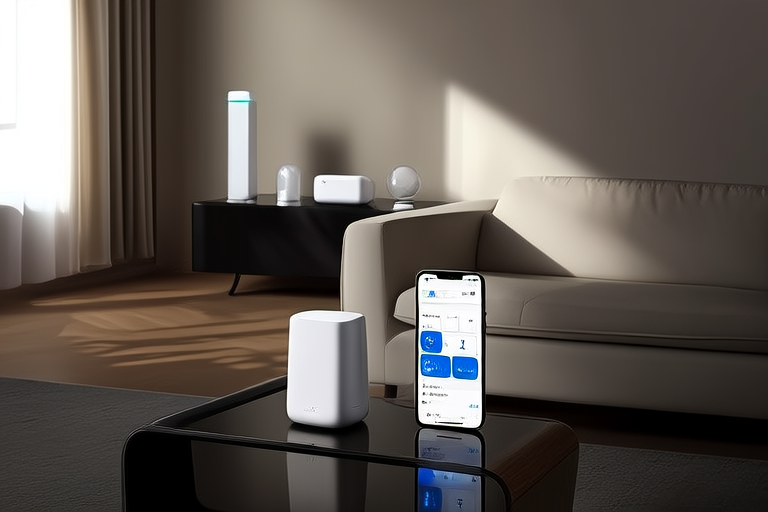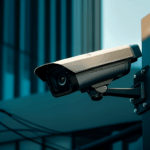“`html
How Smart Home Devices Are Changing Daily Routines for the Better
Introduction
Smart home devices have revolutionized the way we live, offering a range of functionalities that enhance our daily routines. These devices, which include everything from voice assistants and smart thermostats to automated lighting systems, are designed to make our homes more convenient, energy-efficient, secure, and personalized. As technology continues to advance, smart home devices are becoming increasingly popular, with many households integrating them into their daily lives.
The appeal of smart home technology lies in its ability to streamline tasks, improve comfort, and offer greater control over household functions. Whether it’s adjusting the temperature, turning off lights, or securing your home, smart devices provide a level of convenience and automation that was once only imaginable in science fiction. In this article, we will explore how smart home devices are transforming daily routines across various aspects of life, highlighting the key areas where they are making a significant difference.
Convenience
One of the most noticeable benefits of smart home devices is the convenience they bring to daily life. Voice assistants, smart thermostats, and automated lighting systems are just a few examples of how these devices simplify everyday tasks. With voice commands, users can control multiple devices with a single command or manage them through a centralized app. This level of control means you can adjust the thermostat, turn on the lights, and lock the doors without ever leaving your seat.
Smart locks, cameras, and security systems further enhance convenience and safety. For instance, smart locks allow you to grant temporary access to visitors or service providers remotely, eliminating the need for physical keys. Doorbell cameras enable you to monitor your front door from anywhere, while remote monitoring systems give you real-time access to your home’s security feeds. These features not only make life easier but also provide an added layer of protection.
Imagine coming home after a long day at work. Instead of fumbling for keys, you simply unlock the door with your smartphone or voice command. Once inside, the lights automatically turn on, and the thermostat adjusts to your preferred temperature. This seamless integration of smart devices creates a more efficient and enjoyable living experience.
Energy Efficiency
Smart home devices are not only convenient but also contribute significantly to energy efficiency. By optimizing heating, cooling, and lighting, these devices help reduce energy consumption, saving homeowners money while protecting the environment. Smart thermostats, for example, learn your schedule and adjust the temperature accordingly, ensuring that your home is neither too hot nor too cold when you’re away.
According to a study by the U.S. Department of Energy, programmable thermostats can save homeowners up to 10% on heating and cooling costs per year. When combined with smart sensors and energy management systems, these savings can be even more substantial. For instance, some smart thermostats can detect when no one is home and automatically lower the temperature, reducing unnecessary energy usage.
In addition to thermostats, smart lighting systems can also play a crucial role in energy conservation. Motion-sensing lights ensure that lights are only on when needed, while smart bulbs can be dimmed or turned off remotely. These small adjustments can add up to significant savings over time. Moreover, smart energy monitors provide real-time feedback on energy usage, helping homeowners identify areas where they can cut back.
Security
Smart home security systems provide greater peace of mind through advanced features like motion detection, doorbell cameras, and remote monitoring. These devices offer real-time alerts and notifications, allowing you to stay informed about what’s happening in and around your home. Motion detection sensors can notify you if someone enters your property, while doorbell cameras allow you to see and speak to visitors from your phone.
Advancements in home security, such as facial recognition and AI-driven alerts, are further enhancing the safety of smart homes. Facial recognition technology can differentiate between family members and strangers, providing more precise alerts. AI algorithms analyze patterns and behaviors, identifying unusual activities that may indicate a security breach. These intelligent systems can even predict potential threats before they occur, offering proactive protection.
Remote monitoring allows you to check in on your home from anywhere, whether you’re at work, on vacation, or simply out running errands. This feature ensures that you always have a clear view of your home’s security status. In case of an emergency, you can quickly respond by contacting authorities or taking other necessary actions. Overall, smart home security systems have significantly improved the safety and peace of mind of homeowners.
Personalization
Smart home devices go beyond mere convenience and energy efficiency; they also offer personalized experiences tailored to individual preferences. Machine learning algorithms analyze user habits and schedules, creating environments that adapt to your needs. For example, smart lighting systems can adjust brightness and color based on the time of day or your mood. Smart thermostats can learn your preferred temperatures and adjust accordingly, ensuring optimal comfort.
Entertainment systems are another area where personalization shines. Smart speakers and TVs can recommend music, movies, and shows based on your viewing history and preferences. Some systems even suggest new content based on trends and user behavior. This level of customization enhances the overall living experience, making your home feel more like a sanctuary.
Machine learning plays a crucial role in tailoring these experiences. By analyzing data from various sources, smart home devices can anticipate your needs and make adjustments before you even realize you need them. For instance, if you typically wake up at 6 AM, your smart alarm clock can gently wake you with soft lighting and soothing sounds. Similarly, if you tend to watch TV in the evening, your smart entertainment system can recommend shows based on your past choices.
Challenges and Considerations
While smart home devices offer numerous benefits, there are also challenges and considerations to keep in mind. Privacy concerns are a common issue, as many smart devices collect data about your habits and preferences. It’s important to choose reputable brands and read privacy policies carefully. Additionally, data security is crucial, as breaches could compromise sensitive information.
The initial cost of setting up a smart home can be a barrier for some. However, many devices offer affordable options that can be integrated gradually. When selecting devices, it’s essential to ensure compatibility within a smart home ecosystem. Look for products that work seamlessly together and offer easy installation and setup. Regular updates and maintenance are also vital to keeping your smart home systems secure and efficient.
By addressing these challenges proactively, you can enjoy the full benefits of smart home technology without compromising your privacy or security. Taking the time to research and plan your smart home setup will ensure a smooth and rewarding experience.
Conclusion
Smart home devices are transforming daily routines in numerous ways, offering convenience, energy efficiency, security, and personalization. From voice-controlled lighting to AI-driven security systems, these devices are making homes smarter and more efficient than ever before. By integrating smart home technology into your daily life, you can enjoy a more comfortable, secure, and eco-friendly living environment.
Whether you’re looking to save money on energy bills, enhance your home’s security, or create a personalized living space, smart home devices offer solutions that can improve your quality of life. As technology continues to evolve, the possibilities for smart home innovation are endless. We encourage readers to explore the benefits of incorporating smart home technology into their own lives and experience the positive impact it can have on their daily routines.
“`


